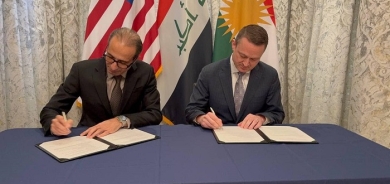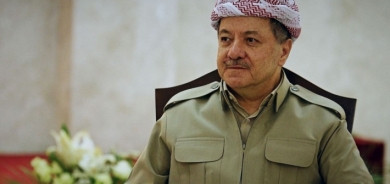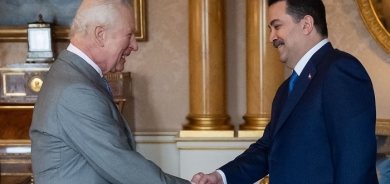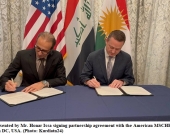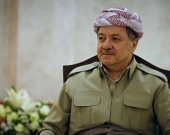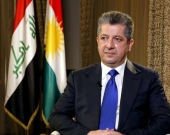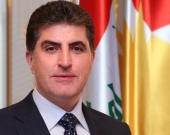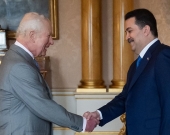Egypt forces assault protest camp, many scores shot dead

Egyptian security forces crushed a protest camp of thousands of supporters of the deposed president on Wednesday, shooting dead scores of people in the bloodiest day in decades in the Arab world's most populous country.
The health ministry said 149 people were killed, both in Cairo and in clashes that broke out elsewhere in the country. Deposed President Mohamed Mursi's Muslim Brotherhood said the death toll was far higher in what it described as a "massacre".
While dead bodies wrapped in carpets were carried to a makeshift morgue near the Rabaa al-Adawiya mosque, the army-backed rulers declared a one-month state of emergency, restoring to the military the unfettered power it wielded for decades before a pro-democracy uprising in 2011.
Thousands of Mursi's supporters had been camped at two major sites in Cairo since before he was toppled on July 3, and had vowed not leave the streets until he was returned to power.
With the assault, the authorities ended the six-week stand-off with a show of state force that defied international pleas for restraint. Egypt is the strategic heart of the Middle East, striding the Suez Canal and with a peace treaty with Israel.
Violence spread beyond Cairo, with Mursi supporters and security forces clashing in the cities of Alexandria, Minya, Assiut, Fayoum and Suez and in Buhayra and Beni Suef provinces.
The bloodshed also effectively ends the open political role of the Brotherhood, with the harshest ever crackdown on a movement that survived underground for 85 years to emerge after the 2011 uprising and win every election held since.
Security officials said senior Brotherhood figures Mohamed El-Beltagi and Essam El-Erian were arrested, joining Mursi himself and other Brotherhood leaders in jail. Beltagi's 17-year-old daughter was among the dead.
Before he was arrested, Beltagi warned of wider conflict, and singled out the head of the armed forces who deposed Mursi on July 3 following mass protests.
"I swear by God that if you stay in your homes, Abdel Fattah al-Sisi will embroil this country so that it becomes Syria. Abdel Fattah al-Sisi will push this nation to a civil war so that he escapes the gallows."
In one a rare sign of unease from among the Brotherhood's opponents, Mohamed ElBaradei, a former U.N. diplomat, quit his post of vice president in the army-backed government, saying the conflict could have been resolved by peaceful means.
"The beneficiaries of what happened today are those call for violence, terrorism and the most extreme groups," he said.
But his own political movement, the anti-Islamist National Salvation Front, showed no such qualms, declaring "Egypt has held its head high in the sky announcing victory over political groups that abuse religion".
Since Mursi was toppled, the security forces had twice before killed scores of protesters in attempts to drive Mursi's followers off the streets. But they had held back from a full-scale assault on the tented camp where followers and their families have lived behind makeshift barricades.
After the assault on the camp began, desperate residents recited Koranic verse and screamed "God help us! God help us!" while helicopters hovered overhead and armored bulldozers ploughed over their makeshift defenses.
Reuters journalists on the scene saw masked police in dark uniforms pour out of police vans with sticks and tear gas bombs. They tore down tents and set them ablaze.
"They smashed through our walls. Police and soldiers, they fired tear gas at children," said Saleh Abdulaziz, 39, a secondary school teacher clutching a bleeding wound on his head.
DEAD BODIES, SMASHED SKULLS
After shooting with live ammunition began, wounded and dead lay on the streets near pools of blood. An area of the camp that had been a playground and art exhibit for the children of protesters was turned into a war-zone field hospital.
Seven dead bodies were lined up in the street, one of a teenager whose skull was smashed, with blood pouring from the back of his head.
At another location in Cairo, a Reuters reporter was in a crowd of Mursi supporters when he heard bullets whizzing past and hitting walls. The crowd dived to the ground for cover. A man was killed by a bullet to the head.
The government insists people in the camp were armed. Several television stations, all controlled by the state or its sympathizers, ran footage of what appeared to be pro-Mursi protesters firing rifles at soldiers from behind sandbag barricades.
However Reuters journalists and other Western media have not witnessed such incidents. Crowds appeared to be armed mainly with sticks, stones and slabs of concrete against rifle-wielding police and troops.
The violence was the worst Egypt has suffered since war with Israel in 1973, and reveals security forces prepared to take the sort of action against street protesters that they demurred from when the public rose up against autocrat Hosni Mubarak in 2011.
It forces tough decisions for Egypt's Western allies, especially Washington, which funds Egypt's military with $1.3 billion a year and has so far refused to label the army's overthrow of Mursi a "coup".
"The United States strongly condemns the use of violence against protesters in Egypt," White House spokesman Josh Earnest said. "We extend our condolences to the families of those who have been killed, and to the injured. We have repeatedly called on the Egyptian military and security forces to show restraint."
"We also strongly oppose a return to a State of Emergency law, and call on the government to respect basic human rights such as freedom of peaceful assembly, and due process under the law. The world is watching what is happening in Cairo."
The United States and Europe had pressed hard for Egypt's generals not to crush the demonstrators. A diplomatic effort to open talks between the Brotherhood and the authorities, backed by Washington, Brussels and Arab states, collapsed last week.
CURFEW
Outside of Cairo, state media said Mursi supporters besieged and set fire to government buildings and attacked several churches. Those reports could not be independently confirmed. Christians, who make up 10 percent of the population of 85 million, have feared reprisals from Islamists.
Among the dead in Cairo were at least two journalists. A Reuters photographer was shot in the foot.
At a makeshift morgue at the camp field hospital, a Reuters reporter counted 29 bodies, with others still arriving. Most had died of gunshot wounds to the head.
A 12-year-old boy, bare-chested with tracksuit trousers, lay out in the corridor, a bullet wound through his neck. His mother was bent over him, rocking back and forth and silently kissing his chest. One of the nurses was sobbing on her hands and knees as she tried to mop up the blood with a roll of tissue.
Adli Mansour, the judge appointed president by the army when it overthrew Egypt's first elected leader on July 3, announced a state of emergency for one month and called on the armed forces to help police enforce security. Rights activists said the move would give legal cover for the army to make arrests.
A curfew was imposed in Cairo, Alexandria and several provinces from 7 p.m. to 6 a.m.
Turkey urged the U.N. Security Council and Arab League to act quickly to stop a "massacre" in Egypt. Iran warned of the risk of civil war. The European Union and several of its member countries deplored the killings.
Nine hours after the start of Wednesday's operation, crowds of protesters were still blocking roads, chanting and waving flags as security forces sought to prevent them from regrouping.
"At 7 a.m. they came. Helicopters from the top and bulldozers from below. They smashed through our walls. Police and soldiers, they fired tear gas at children," said teacher Saleh Abdulaziz, 39, clutching a bleeding wound on his head.
"They continued to fire at protesters even when we begged them to stop."
MARKETS NERVOUS
The government issued a statement saying security forces had showed the "utmost degree of self-restraint", reflected in what it said were low casualties compared to the number of people "and the volume of weapons and violence directed against the security forces".
It added that it would press ahead with implementing an army-backed political transition plan in "a way that strives not to exclude any party from participation". The plan, rejected by the Brotherhood, envisions elections in about six months.
Mursi became Egypt's first freely elected leader in June 2012, but failed to tackle deep economic malaise and worried many Egyptians with apparent efforts to tighten Islamist rule.
Liberals and young Egyptians staged huge rallies demanding that he resign, and the army said it removed him in response to the will of the people. Since he was deposed, Gulf Arab states pledged $12 billion in aid to Egypt, buying the interim government valuable time to try to put finances back in order.
By late afternoon, the campsite where Mursi's supporters had maintained their vigil for six weeks was empty. One man stood alone in the wreckage reciting the central tenet of Islam through a loudspeaker: "There is no God but Allah."
He wept, and then his voice broke off into silence.
(Additional reporting by Michael Georgy, Tom Perry, Shadia Nasralla, Omar Fahmy and Ashraf Fahim in Cairo, Adrian Croft in Brussels and Carolyn Cohn in London; Writing by Peter Graff)
By Yasmine Saleh and Tom Finn


